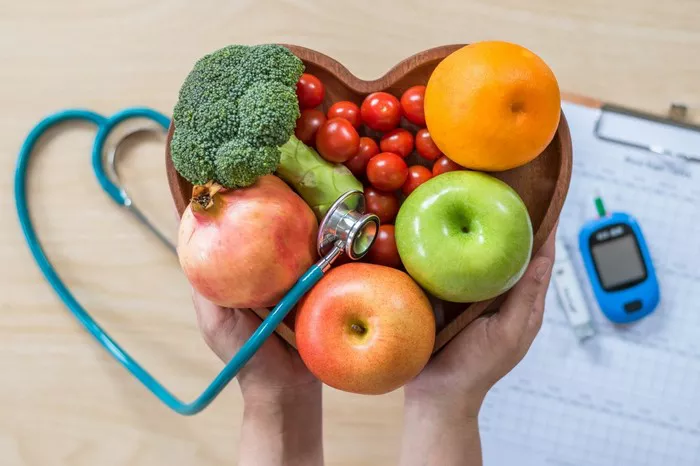Managing carbohydrate intake is crucial for people with diabetes, as carbs directly impact blood sugar levels. While fruits are an essential part of a healthy diet, some fruits are lower in carbohydrates than others, making them more suitable for individuals with diabetes. These low-carb fruits provide essential nutrients such as vitamins, fiber, and antioxidants without causing significant spikes in blood sugar.
In this article, we will explore the fruits with the least carbs, their health benefits, and how to incorporate them into a diabetes-friendly diet. Additionally, we will discuss the glycemic index (GI) and glycemic load (GL) of fruits to help individuals make informed decisions about fruit consumption.
Understanding Carbohydrates, Glycemic Index, and Glycemic Load
Before diving into specific fruits, it’s important to understand the relationship between carbohydrates, glycemic index, and glycemic load, as these factors influence how fruits affect blood sugar levels.
Carbohydrates and Blood Sugar
Carbohydrates are one of the primary sources of energy for the body, but they also raise blood sugar levels. In people with diabetes, the body’s ability to manage blood sugar is impaired, making it crucial to monitor carb intake. Carbs are classified into three types:
Simple carbohydrates: Found in sugars and processed foods, these carbs are quickly digested and can lead to rapid blood sugar spikes.
Complex carbohydrates: Found in whole grains, legumes, and vegetables, these carbs are digested more slowly and have a lesser impact on blood sugar.
Fiber: Although classified as a carbohydrate, fiber doesn’t raise blood sugar levels because it is not digested by the body. Therefore, fiber-rich fruits are often recommended for people with diabetes.
Glycemic Index (GI)
The Glycemic Index is a scale that measures how quickly a carbohydrate-containing food raises blood glucose levels. Foods with a high GI (above 70) cause rapid spikes in blood sugar, while foods with a low GI (below 55) cause a slower, more gradual increase in blood sugar.
Glycemic Load (GL)
The Glycemic Load is a more accurate measure because it takes into account both the GI and the amount of carbohydrate in a serving of food. A low GL indicates that a food has a minimal effect on blood sugar.
Fruits with a lower GI and GL are generally better choices for people with diabetes as they cause a slower and more controlled rise in blood sugar.
Low-Carb Fruits That Are Ideal for People with Diabetes
Now, let’s explore the fruits that are lowest in carbohydrates, making them the best options for people with diabetes. These fruits offer nutritional value without causing significant spikes in blood glucose levels.
1. Berries
Berries, including strawberries, raspberries, blackberries, and blueberries, are among the best fruit choices for individuals with diabetes. They are high in fiber, antioxidants, and essential vitamins while being relatively low in carbs.
Strawberries: One cup of sliced strawberries contains around 11 grams of carbs and 3 grams of fiber, resulting in a net carb count of approximately 8 grams.
Raspberries: One cup of raspberries has about 15 grams of carbs, 8 grams of fiber, and a net carb count of only 7 grams.
Blackberries: With about 14 grams of carbs and 7 grams of fiber per cup, blackberries also have a low net carb count of 7 grams.
Blueberries: Although blueberries have slightly more carbs than other berries, they are still relatively low, with around 21 grams of carbs per cup and 3.6 grams of fiber, resulting in a net carb count of 17 grams.
Berries are also rich in antioxidants such as anthocyanins, which have anti-inflammatory and heart-protective properties. Their low GI and high fiber content make them an excellent choice for people with diabetes.
2. Avocados
Avocados are technically a fruit, and they are exceptionally low in carbs. They are also an excellent source of healthy fats, particularly monounsaturated fat, which is beneficial for heart health.
Carbs in Avocados: A medium-sized avocado contains only about 12 grams of total carbs, but it also provides 10 grams of fiber, which results in only 2 grams of net carbs.
Avocados are also rich in potassium, which helps manage blood pressure, and they contain vitamins E, C, and B6. Due to their high fat content, they provide a feeling of fullness and are an excellent addition to a diabetes-friendly diet.
3. Watermelon
Watermelon is a hydrating fruit that is relatively low in carbs compared to other fruits. It has a high water content, which makes it refreshing, especially during hot weather.
Carbs in Watermelon: A 1-cup serving of watermelon contains about 11 grams of carbs and 1 gram of fiber, yielding around 10 grams of net carbs.
While watermelon has a higher GI than some other fruits, its high water content helps offset the carb load. It is also a good source of vitamin C and contains the antioxidant lycopene, which has been linked to heart health benefits.
4. Cantaloupe and Honeydew Melon
Like watermelon, cantaloupe and honeydew melon are melons with a high water content and relatively low carbohydrate content. They are sweet, juicy, and can help satisfy sugar cravings without causing significant blood sugar spikes.
Carbs in Cantaloupe: A 1-cup serving of cantaloupe contains about 13 grams of carbs and 1.5 grams of fiber, resulting in approximately 11.5 grams of net carbs.
Carbs in Honeydew Melon: A 1-cup serving of honeydew melon has around 14 grams of carbs and 1 gram of fiber, yielding about 13 grams of net carbs.
Both melons are rich in vitamin C and are hydrating, making them excellent choices for those with diabetes who want to stay hydrated while enjoying a sweet fruit.
5. Kiwi
Kiwi is a small, nutrient-dense fruit that packs a punch in terms of health benefits. It is rich in vitamin C, fiber, and antioxidants while being relatively low in carbohydrates.
Carbs in Kiwi: One medium-sized kiwi contains about 15 grams of carbs and 2 grams of fiber, resulting in a net carb count of approximately 13 grams.
Kiwi also contains a good amount of potassium, which helps with blood pressure regulation. Its high vitamin C content is beneficial for immune function and skin health.
6. Peaches
Peaches are a delicious and fragrant summer fruit that provides a moderate amount of carbohydrates. They are rich in vitamins A and C, as well as fiber, which helps regulate blood sugar levels.
Carbs in Peaches: One medium-sized peach contains about 15 grams of carbs and 2 grams of fiber, resulting in a net carb count of 13 grams.
Peaches also contain antioxidants like flavonoids and carotenoids, which have anti-inflammatory properties and may help protect against certain chronic diseases.
7. Grapefruit
Grapefruit is a citrus fruit that is low in carbs and calories, making it an excellent choice for people with diabetes who want to enjoy a tart and refreshing fruit.
Carbs in Grapefruit: Half of a medium-sized grapefruit contains about 13 grams of carbs and 2 grams of fiber, yielding around 11 grams of net carbs.
Grapefruit is also rich in vitamin C and has been shown to support heart health and weight management, both of which are important for diabetes management.
8. Lemons and Limes
Lemons and limes are not only low in carbs but also offer a burst of refreshing citrus flavor. They are often used to add flavor to water, salads, and various dishes, making them versatile additions to a diabetes-friendly diet.
Carbs in Lemons: One medium-sized lemon contains about 6 grams of carbs and 2 grams of fiber, yielding around 4 grams of net carbs.
Carbs in Limes: One medium-sized lime contains about 7 grams of carbs and 2 grams of fiber, resulting in approximately 5 grams of net carbs.
These fruits are also excellent sources of vitamin C and can help improve iron absorption when consumed with plant-based iron sources.
9. Tomatoes
Tomatoes, though often considered a vegetable, are actually a fruit. They are low in carbs and provide essential nutrients like vitamin C, potassium, and folate.
Carbs in Tomatoes: One medium-sized tomato contains about 5 grams of carbs and 1.5 grams of fiber, resulting in a net carb count of about 3.5 grams.
Tomatoes are rich in lycopene, an antioxidant that has been shown to promote heart health and protect against certain cancers.
Incorporating Low-Carb Fruits into a Diabetes-Friendly Diet
Incorporating low-carb fruits into a diabetes-friendly diet is simple and can add variety and flavor to your meals. Here are some tips for adding these fruits to your diet:
Smoothies: Blend a handful of berries, half an avocado, and a bit of lemon juice for a refreshing and nutrient-packed smoothie.
Salads: Add slices of strawberries, kiwi, or grapefruit to salads for an extra burst of flavor and vitamins.
Snacks: Keep low-carb fruits like berries and melon slices on hand for quick, satisfying snacks.
Desserts: Use low-carb fruits like raspberries or blackberries as a topping for sugar-free yogurt or as a standalone dessert.
Conclusion
Managing blood sugar levels is a key part of diabetes care, and choosing the right fruits can make a significant difference in blood glucose control. Low-carb fruits such as berries, avocados, watermelon, and citrus fruits are excellent choices for individuals with diabetes. These fruits provide essential nutrients and antioxidants while keeping carbohydrate intake in check.
By focusing on fruits with low glycemic indices and glycemic loads, people with diabetes can enjoy a variety of delicious, nutrient-dense foods without compromising their blood sugar management. Always consult with a healthcare provider or nutritionist to develop a personalized diet plan that aligns with your specific health goals.
Related topics:
What Should We Eat in Sugar Disease?



























